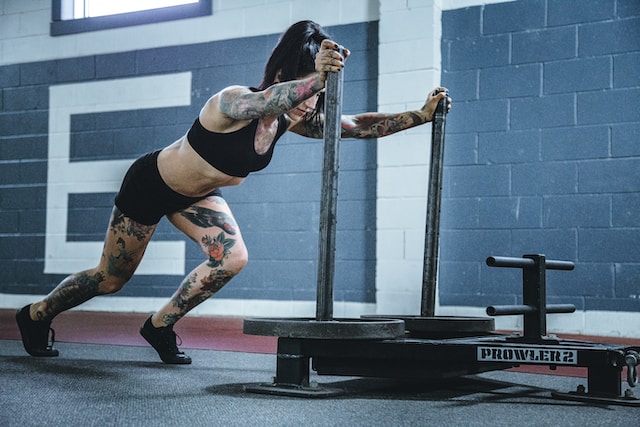In the realm of fitness, certain terms perpetuate stereotypes and limit our perception of what individuals are capable of achieving. One such term that deserves scrutiny is the commonly used phrase “girl push-ups.” This article aims to shed light on the negative impact of this terminology and why it is time to push past these stereotypes and embrace a more inclusive approach to fitness.
The Problem with Gendered Language: Labeling modified push-ups as “girl push-ups” is not only misleading but also reinforces gender stereotypes that have no place in the realm of physical fitness. The term implies that push-ups performed on the knees are somehow inferior or easier, creating a barrier for individuals who identify as female or anyone else seeking to improve their strength.
Challenging Perceptions: It is crucial to challenge the perception that push-ups on the knees are an easier alternative. While they do modify the exercise by reducing the load on the upper body, it does not diminish their effectiveness or the effort required to perform them. Push-ups on the knees still engage the core, arms, and chest muscles, contributing to strength development and overall fitness.
Inclusivity in Fitness: Fitness should be a realm where everyone feels included and empowered to work towards their goals, regardless of gender. Using gendered terms like “girl push-ups” only serves to alienate and discourage certain individuals from participating in strength-building exercises. It is essential to foster an environment where all individuals are encouraged to challenge themselves physically, irrespective of societal expectations.
Dismantling Stereotypes: Embracing a more inclusive approach to fitness means dismantling the stereotypes and biases embedded within our language. The concept of “girl push-ups” perpetuates the misconception that femininity is synonymous with weakness. We must reject these stereotypes and recognize that strength is not exclusive to any gender. By doing so, we create an environment that supports and encourages individuals to reach their full potential.
Promoting Personal Progress: Fitness is a personal journey, and progress should be measured against one’s own capabilities and goals rather than arbitrary standards. By focusing on personal progress, individuals can develop a healthier mindset, fostering self-confidence and resilience. It is time to shift our perspective from comparing and categorizing exercises based on gender to celebrating individual achievements and growth.
Reframing the Conversation: To build a more inclusive fitness culture, we must reframe the conversation surrounding push-ups and other strength exercises. Instead of focusing on gender-based labels, we should encourage and support all individuals to engage in physical activities that suit their abilities and aspirations. By dismantling the notion of “girl push-ups,” we pave the way for a more inclusive and supportive fitness community.
Conclusion: The use of gendered language, such as “girl push-ups,” within the fitness industry is not only misleading but also perpetuates harmful stereotypes. It is essential to challenge and push past these limiting terms to create a more inclusive and empowering fitness culture. By embracing an approach that celebrates individual progress and rejects gender-based comparisons, we can foster an environment where everyone feels welcome and motivated to achieve their fitness goals. It’s time to push past stereotypes and redefine what it means to be strong.










